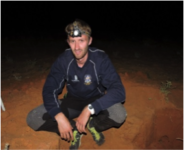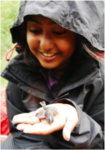Stuart Patterson, BVetMed MSc MRCVS, PhD student

Royal Veterinary Collage, University of London http://www.rvc.ac.uk/about/our-people/stuart-patterson#tab-research Contact: spatterson@rvc.ac.uk A Targeted Approach to Controlling Tuberculosis in Wild Meerkats Whilst there may be good reasons for controlling some diseases of wildlife (e.g. zoonotic risk to people, livestock health, conservation, or welfare), achieving this is often problematic, with difficulties relating…







